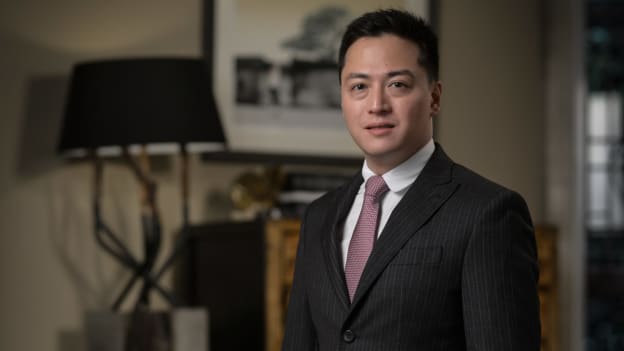Think long-term about innovation and change: Jose Paolo Delgado, MD of Delbros Group

With COVID-19 disrupting practically every aspect of the world today, there's an urgent need not just for innovation, but for ways to make that innovation part of what we do. People Matters asked Jose Paolo Delgado, Managing Director of the Delbros Group, about how his family's seven-decade-old business has made its name as a major adopter of innovation in the Philippines and the insights that arise from that perspective.
The Delbros Group was founded in 1946 as a logistics and port operations firm, and made its name from the outset being the first business in the country to bring in various technological solutions—from mechanization, to the adoption of new types of port and logistics equipment, to introducing new products and services, to backing new agricultural solutions. Here's what Jose Paolo shared from the firm's decades of experience with innovation.
When new innovations are brought into an industry, what challenges have you observed for the people working in that industry?
The pace of innovation in the industries we operate in has accelerated exponentially. We truly live in an inspiring and technologically exciting period. I find it fascinating that with all of the advances we have made to date, we are still very much in the infancy of many technologies that will change how we live and how we operate our business, such as Automation, AI, CRISPR, Vertical Farming, or Internet of Things.
Changing and adapting time-tested processes in business is always a disruptive experience, but in today's environment do we really have much of a choice? The world has gotten a lot smaller. You are now looking beyond local competition to regional and international players. Technology can quickly shift you from an industry leader to a laggard overnight.
Is your managing team able to spot trends in their infancy and quickly self disrupt? Are they willing to take the difficult choices with regard to people and company assets? Managers these days need to spend a lot of time reading, benchmarking, and rethinking the organization's relevance and competitive advantage.
Have you found that some changes are easier, or more difficult, for people to adapt to than others? If so, could you share some thoughts on why that's the case?
I think certain solutions lend themselves more easily to solving immediate pain points and therefore adoption. In our delivery business for example, the use of ride sharing and tech enabled platforms, while far from perfect, was a quick fit. Cashless transactions, user friendly platforms, and real time data, were helpful complements to our operations.
Our investment in multi storey vertical farming towers on the other hand has proven to be more challenging. The technology took several years to perfect, and in the beginning, we barely reached enough KPI's to justify continued investment. We continue to believe that the technology will be a major shift for agriculture globally, but getting to the point we are at now took a lot of faith and trust in technology that had yet to be developed.
There's surely much upskilling and training needed to make the workforce future-ready. Could you share some of the strategies you have developed to ensure that your people are ready for the changes that innovation brings?
The major innovation shifts that we undertook in the company required external expertise. Fortunately, there is no shortage of resources available for hire. With all of the teleconferencing happening in the world today, I expect that it is getting much easier to reach across borders and at a more affordable level. Pre-COVID we purposefully used our open office spaces to foster collaboration across companies and teams. Young agriponists and techies worked alongside long time shipping and finance veterans. Town halls across companies and departments were regularly set and there were many internal projects that had people from different disciplines pulled together. We instituted a Research Development and Technology team, and funded them appropriately to experiment across our companies.
Interestingly, I have seen the most promise in this over the last few months. Due to COVID-19 we are expecting a prolonged economic downturn and have actively streamlined our organization. With leaner processes, expanded responsibilities, and the shared experience of going through this pandemic together, there is a level of intimacy and trust that has formed within our employees. It is just the kind of environment that fosters innovation and self-disruption. We may still be many months from some form of normality, but we are certainly going to use this time to rebuild and redesign the organization.
A mindset change is also needed in order for people to embrace innovation. Could you share about the culture that has allowed Delbros to continually bring in innovations over the years?
It helps to have a history to learn from. Closing in on our 75th year in the Philippines, I can look back at how we mechanized port handling in the '50s, built the first five-star hotel in the '60s, how we became the first integrated total transport company in the early 80's. We handled the first shipping container in the country and with it the first fleet of intermodal trailers. There were wins and there were losses but the spirit of the organization remains. These are the stories in the company that strengthen our resolve to succeed when tackling a new endeavor.
We keep ourselves from overreaching with the reminder that we do not want to be the last pioneers of this company.
We actively keep our average age young and encourage cross-company transfers. We have an investment team that also has a mandate to find and invest in promising, young companies. We work with them to build their business while also learning from them.
Lastly, our shareholders are active promoters and believers in innovation. They understand that reinventing the business is a prerequisite for prolonged success and sustainability.
At the same time, there will inevitably be some who are left behind by modernization and disruption, perhaps not able to keep up with the changes in their industry. What are your thoughts on how these people could be best provided for?
I feel that we tend to overestimate the short term and underestimate the long term effects of innovation. It is happening rapidly, but for most companies, it does not mean you will be immediately put out of business.
There will be an adoption curve and during this period, you have the opportunity to watch and learn from the success and failure of others. Being the first to market does not guarantee that you will still be around when the dust settles. There are a lot of other factors that are needed to build a thriving business and this might include the skill-sets you have in your organization.















